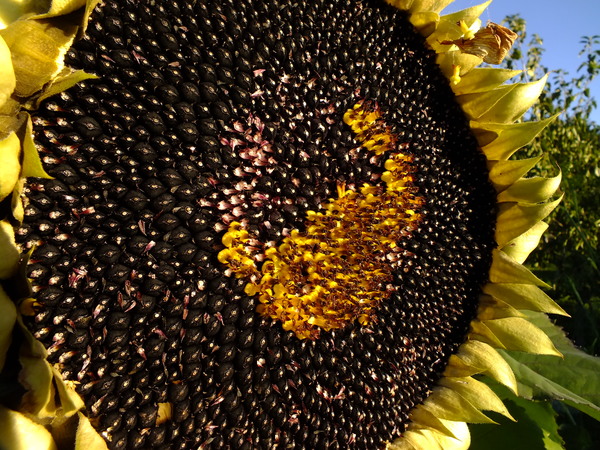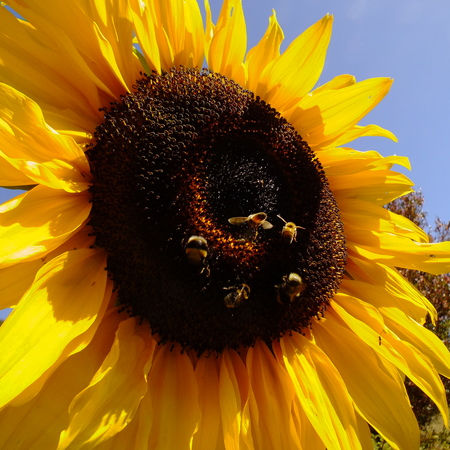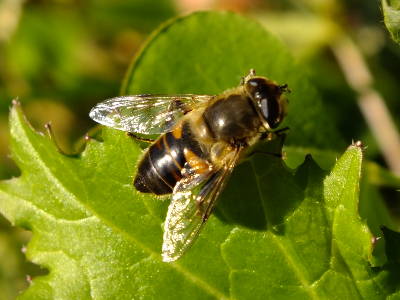The sunflower plant (Helianthus annuus) is a versatile and valuable plant with various uses and qualities. Here are some of its key uses and qualities:
- Edible Seeds: Sunflower seeds are the most well-known and widely consumed part of the plant. They are a popular snack and often used in baking, cooking, and as toppings for salads. Sunflower seeds are rich in healthy fats, protein, vitamins (such as vitamin E), and minerals (such as magnesium and selenium).
- Oil Production: Sunflower seeds are also a significant source of oil. Sunflower oil is commonly used in cooking due to its high smoke point and neutral flavour. It is rich in vitamin E and low in saturated fats, making it a healthier alternative to some other cooking oils.
- Ornamental Beauty: Sunflowers are admired for their striking appearance and are widely grown as ornamental plants in gardens and landscapes. Their large, vibrant yellow flowers with dark centres add a splash of colour and create a cheerful atmosphere.
- Pollinator Attraction: The bright yellow flowers of sunflowers are excellent at attracting pollinators, such as bees, butterflies, and other beneficial insects. Their nectar and pollen serve as valuable food sources for these pollinators, supporting biodiversity and ecosystem health.
- Phytoremediation: Sunflowers have the ability to extract heavy metals and other contaminants from the soil, a process known as phytoremediation. They can be used to help clean up polluted sites by absorbing and accumulating toxins in their tissues.
- Biomass and Animal Feed: Sunflower plants can be used as biomass for biofuel production or as animal feed. The stalks, leaves, and stems of sunflowers can be used as a source of renewable energy or as fodder for livestock.
- Companion Planting: Sunflowers are beneficial in companion planting due to their ability to attract pollinators and repel certain pests. They can be used as a trap crop, diverting insects away from more vulnerable plants.
Qualities of Sunflower Plants:
- Fast Growth: Sunflowers are known for their rapid growth rate, particularly in warm and sunny conditions. This makes them a popular choice for gardens and agricultural purposes.
- Drought Tolerance: Sunflowers are relatively drought-tolerant, which makes them suitable for regions with limited water availability.
- Low Maintenance: Sunflowers are generally easy to grow and require minimal maintenance once established, making them an attractive option for home gardeners and farmers.
- Adaptability: Sunflowers can grow in various soil types, though they prefer well-draining, fertile soils. They are also adaptable to different climates, though they thrive in areas with long, sunny days.
Overall, the sunflower plant is a valuable and versatile crop with numerous uses and qualities that make it an attractive choice for various agricultural, ornamental, and environmental purposes.



